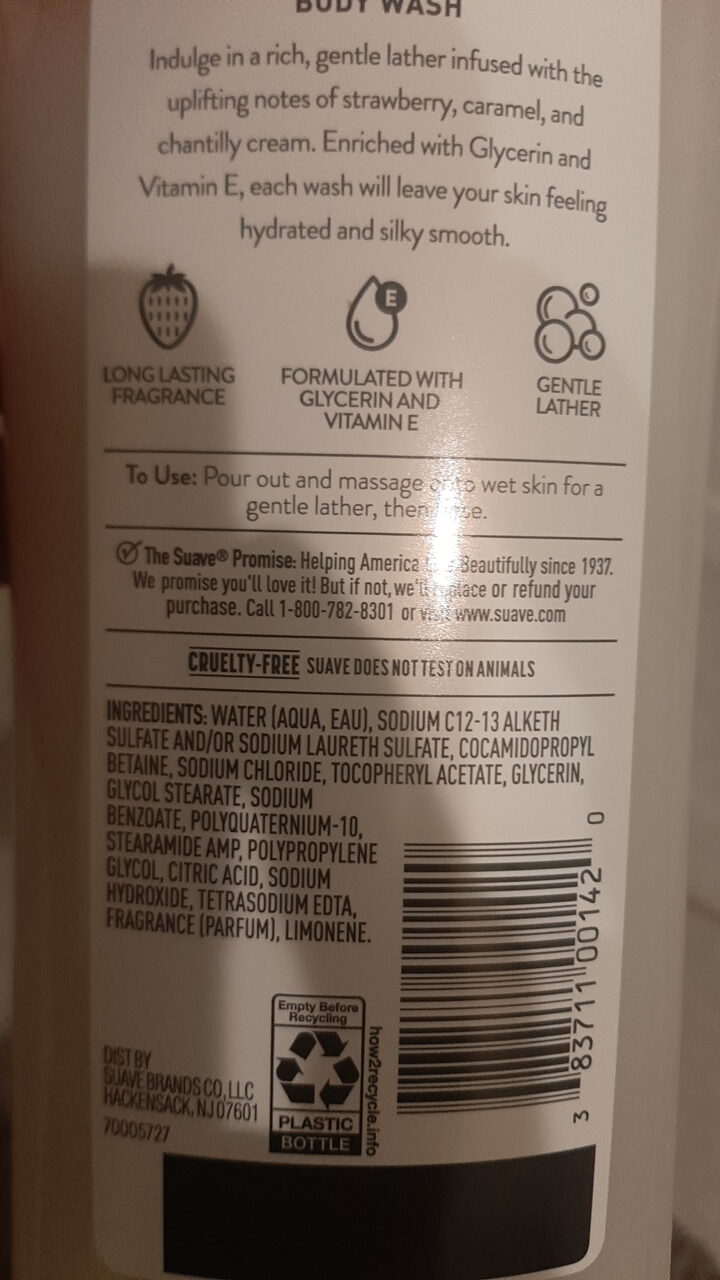
Barcode: 383711001420
body wash
HALAL
📝 Reason: Several body wash ingredients (tocopheryl acetate, glycerin, glycol stearate, stearamide amp, fragrance/parfum) are classified as Doubtful, as their sources may be animal-based or include undisclosed alcohol. Islamic law (Quran 5:3) prohibits consumption of non-Halal animals and intoxicants. If a product contains any Doubtful ingredient, it is classified as Doubtful overall until source/certification is verified (IFANCA: https://www.ifanca.org).
🏷️ Category: Body Wash
📄 Certificates: Long Lasting Fragrance, Formulated With Glycerin And Vitamin E, Gentle Lather, Cruelty Free, Plastic Bottle, Vegetarisch, Vegan
Ingredients:
Details
Understanding the Halal Status of Body Wash
The Halal status of cosmetics and personal care products is essential for many consumers who adhere to Islamic principles. This particular Body Wash is labeled as Halal, providing the assurance that it meets the required religious standards. However, it’s crucial to examine its ingredients closely.
Ingredients Overview
This Body Wash contains various ingredients that can influence its Halal status. While the product is generally considered Halal, some ingredients are classified as ‘Doubtful’ due to their potential sources. Let’s delve into the specifics:
Ingredients Breakdown
- Water (aqua, eau) – Pure water is universally Halal and poses no risk of contamination.
- Sodium C12-13 Alketh Sulfate – A synthetic surfactant mainly from plant-based fatty alcohols. It’s Halal as long as it doesn’t derive from animal products.
- Sodium Laureth Sulfate – Another synthetic surfactant derived from either coconut/palm oil or petroleum, and is generally considered safe.
- Cocamidopropyl Betaine – Derived from coconut oil, this ingredient is plant-based and Halal.
- Sodium Chloride – Commonly known as table salt, derived from mineral sources and always Halal.
- Tocopheryl Acetate – While it’s a vitamin E derivative, its sources can be either animal or plant. If derived from animal, it becomes Doubtful.
- Glycerin – Can be sourced from animal or plant fats. If animal-derived and not certified Halal, it’s classified as Doubtful.
- Glycol Stearate – An uncertain source can render it Doubtful since it can be derived from either animal or plant sources.
- Sodium Benzoate – A preservative that is synthetically produced and Halal.
- Polyquaternium-10 – A synthetic polymer that is not derived from animals, thus Halal.
- Stearamide AMP – A Doubtful ingredient due to potential animal source.
- Polypropylene Glycol – Halal as it doesn’t derive from animal products.
- Citric Acid – Naturally sourced and Halal.
- Sodium Hydroxide – Non-animal derived compound considered Halal.
- Tetrasodium EDTA – A synthetic agent not originating from animals.
- Fragrance (parfum) – This often contentious ingredient could contain undisclosed alcohol or animal-derived components, which makes it Doubtful.
- Limonene – Derived from citrus and considered Halal.
Certification and Assurance
This Body Wash is marked with several certifications, including long-lasting fragrance, formulated with glycerin and vitamin E, cruelty-free, and vegan, which play critical roles in identifying its compliance.
Importance of Halal Certification
Certification from Halal authorities, like IFANCA, is vital to validate the Halal status. Without clear certification, any ingredient classified as ‘Doubtful’ can concern conscious consumers. Always ensure to look for reliable certifications before making a purchase.
Conclusion
In summary, while this Body Wash carries a Halal label, it’s important to remain vigilant about the specific ingredients that can alter its status. Hope this breakdown aids in making informed choices regarding Halal-friendly personal care products.
